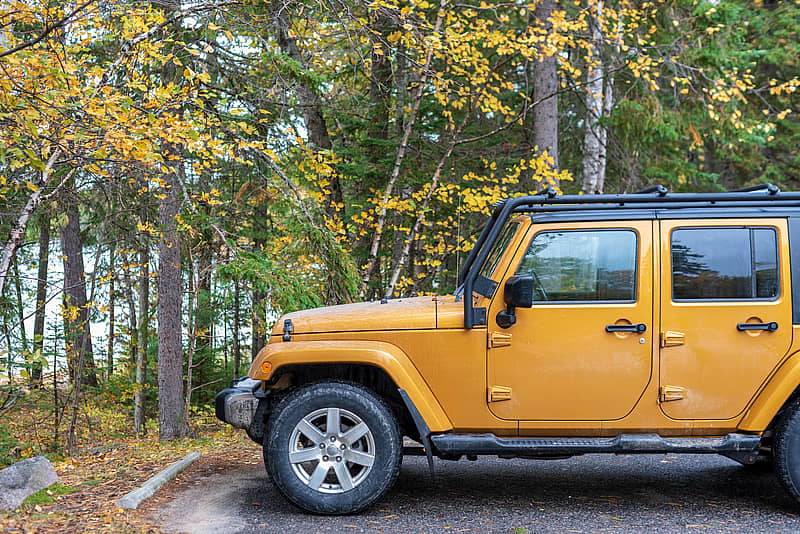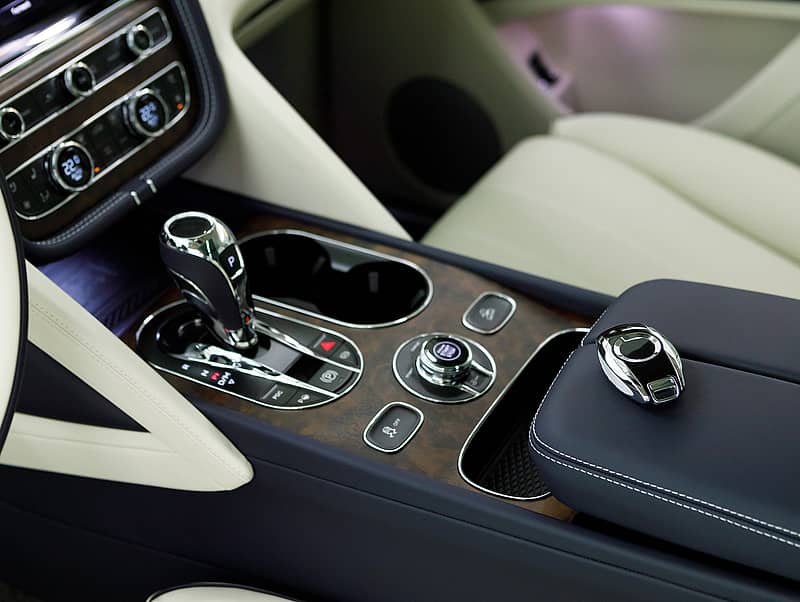
What to Do After Buying a Motorcycle
What To Do After Buying a Motorcycle After buying a new motorcycle, your inclination may be to begin riding right away. Although you may want
There are some key differences between SUVs and minivans, such as how they may look or may typically be used. While the differences between a SUV and a minivan can vary, especially when comparing specific brands and models, the following characteristics may typically be found when comparing both SUVs and minivans.
Minivans and certain models of SUVs come equipped with three rows of seating for an increased number of passengers.
Along with increased seating SUVs and minivans typically have increased cargo space, legroom, and the option for foldable third row seating.
SUVs, like many other vehicles, have traditional opening doors, while minivans have a combination of traditional doors along with sliding rear doors, making it more accessible to enter and exit in smaller parking spaces.
Possibly the biggest difference between SUVs and minivans lies in their off-road capability. Minivans are typically lower to the ground, more suited for paved roads. On the other hand, SUVs typically come equipped with more ground clearance and all-wheel or four-wheel drive.
Similar to their off-road capabilities, SUVs are also typically superior when it comes to towing. Minivans can manage light to moderate loads, but SUVs are generally much better equipped at towing.
The intended use of SUVs and minivans are also an important difference between the two types of vehicles. If you plan on off-roading or needing to tow objects, a SUV is a more desirable option for you to choose. If extra space or room for more passengers is what is desired, then a minivan is the better choice for you.

Just like your typical auto insurance policy, there are certain types of coverage that are available for SUVs and minivans. Some of these coverages include, but are not limited to:
Collision coverage insurance is exactly what it sounds like, coverage for when an accident with another vehicle or certain objects occurs. Collision is important to have, as it helps cover the costs of repairs and possibly even cover the cost of replacing your SUV or minivan (depending on the amount and type of coverage and subject to policy terms, conditions, and exclusions). One often overlooked fact is that it in the event of a vehicle-on-vehicle accident, collision insurance may cover certain costs regardless of who is at fault for the accident.
Whereas collision coverage typically covers vehicle-to-vehicle accidents, comprehensive coverage covers damage to your vehicle caused by things other than a collision, such as vandalism, theft, hail, fire, and accidents with animals.
Liability coverage is insurance that aids you financially for legal and medical fees in the event that you are responsible for causing bodily injury to someone else or damage to their property. Liability coverage is critical, and legally it is a must have for being on the road. In fact, most U.S. states require all drivers to have liability insurance to drive.
An accident can be stressful enough, let alone discovering later that the other individual involved in the accident is either uninsured (meaning they do not have auto liability insurance) or underinsured (meaning they have liability insurance, but the liability limits are inadequate). As the name implies, uninsured and underinsured motorist coverage provides you with compensation for your medical bills and pain and suffering (subject to policy limits, terms, conditions, and exclusions) when the other driver either lacks insurance or has an inadequate amount of insurance. It is important coverage to have, and in some states, it is legally required.
Just like any auto insurance coverage, the price of insurance for your SUV or minivan can vary depending on a variety of factors. To help prepare you for getting your quote, here are some factors that you will need to discuss with your local Cross Insurance agent.

Insurance companies look at various factors to determine insurance rates. Some of those are listed above, and additionally there are other components that they may consider. For example, there are vehicle specific elements, such as safety ratings, vehicle weight, size, and potential damage the vehicle could inflict if involved in an incident. As a result, SUVs typically cost more to insure than minivans, due to their size and capability of imposing a higher amount of damage.
Comparing multiple insurance quotes is a great way to potentially save. While many websites may show an average price for an insurance company, what you may pay could be drastically different depending on the state you live in, your claims history, and the amount of coverage you choose. Requesting a custom quote for your auto insurance is a great place to start when it comes to comparing coverages and saving. Reach out to one of our local offices to start the process today.
If you use a SUV or minivan for your business, commercial auto insurance may be recommended, even if you are leasing the vehicle. Commercial auto insurance policies typically have higher coverage limits than personal policies. If you are unsure if your business needs commercial auto coverage, consider if you use your SUV or minivan for any of the following:
Generally, commercial auto insurance covers things such as medical expenses for individuals who are injured in an accident involving your business vehicles, property damage from auto accidents, and damage to your business vehicles from certain covered weather events. Some other common commercial auto insurance coverages are:
In order to protect your investment, you need to be sure you have appropriate insurance coverages. Some common coverages for SUVs and minivans include liability, comprehensive and collision, and uninsured or underinsured motorist. You should connect with a local insurance agent to discuss the unique features of your vehicle and to request a quote today.
___________________________________________________________________
This article is for general informational purposes only and is not to be relied upon or used for any particular purpose. Cross Insurance shall not be held responsible in any way for, and specifically disclaims any liability arising out of or in any way connected to, reliance on or use of any of the information contained in this article. The information contained or referenced in this article is not intended to constitute and should not be considered legal, insurance, accounting or other professional advice, nor shall it serve as a substitute for the recipient obtaining such advice. The views expressed in this article are that of its author and do not necessarily represent the views of Cross Financial Corp. and its subsidiaries and affiliates (“Cross Insurance”) or Cross Insurance’s management or shareholders.

What To Do After Buying a Motorcycle After buying a new motorcycle, your inclination may be to begin riding right away. Although you may want

New Hampshire Homeowners Insurance How to Get Insurance Quotes for Your Home in NH When it comes to selecting an insurance policy for your New

What to Do After Buying an Existing Business The time period after buying a business can be both exciting and stressful. Making an investment into